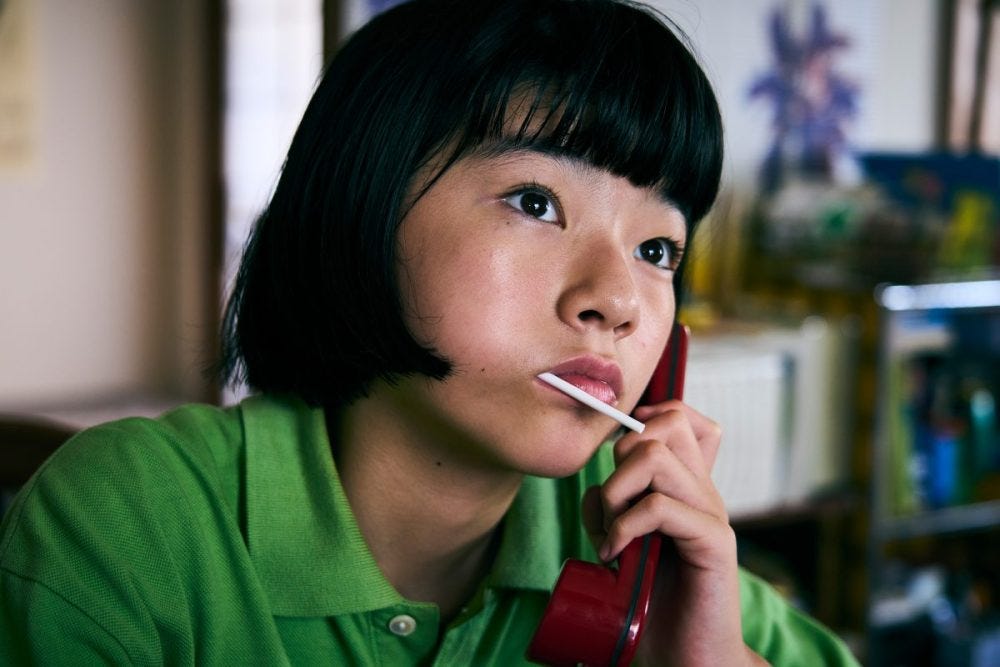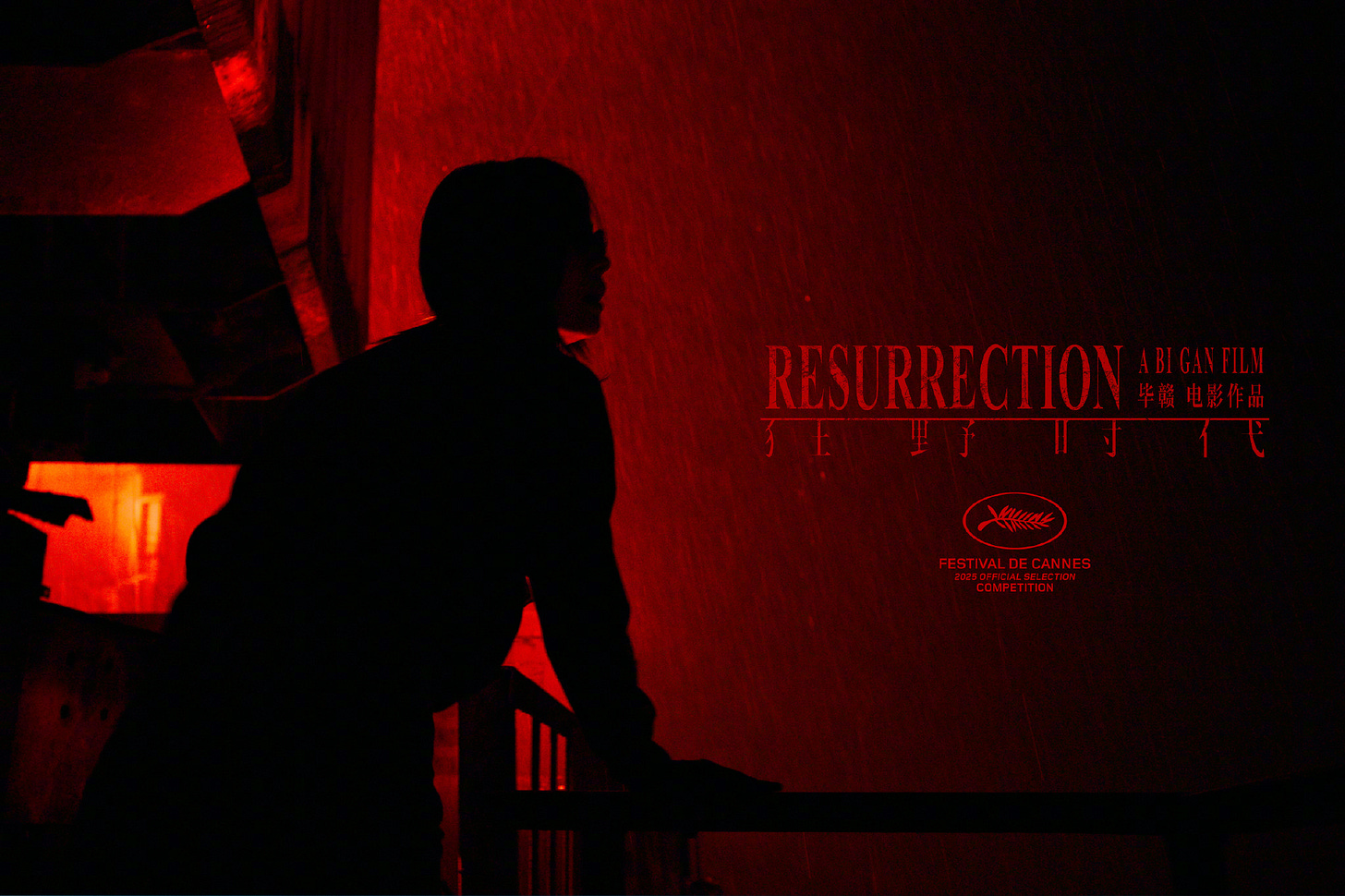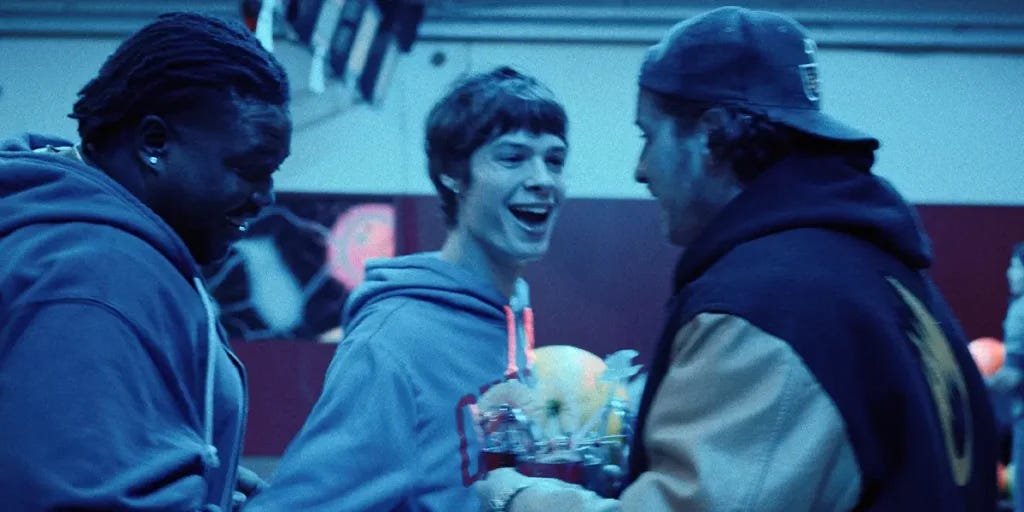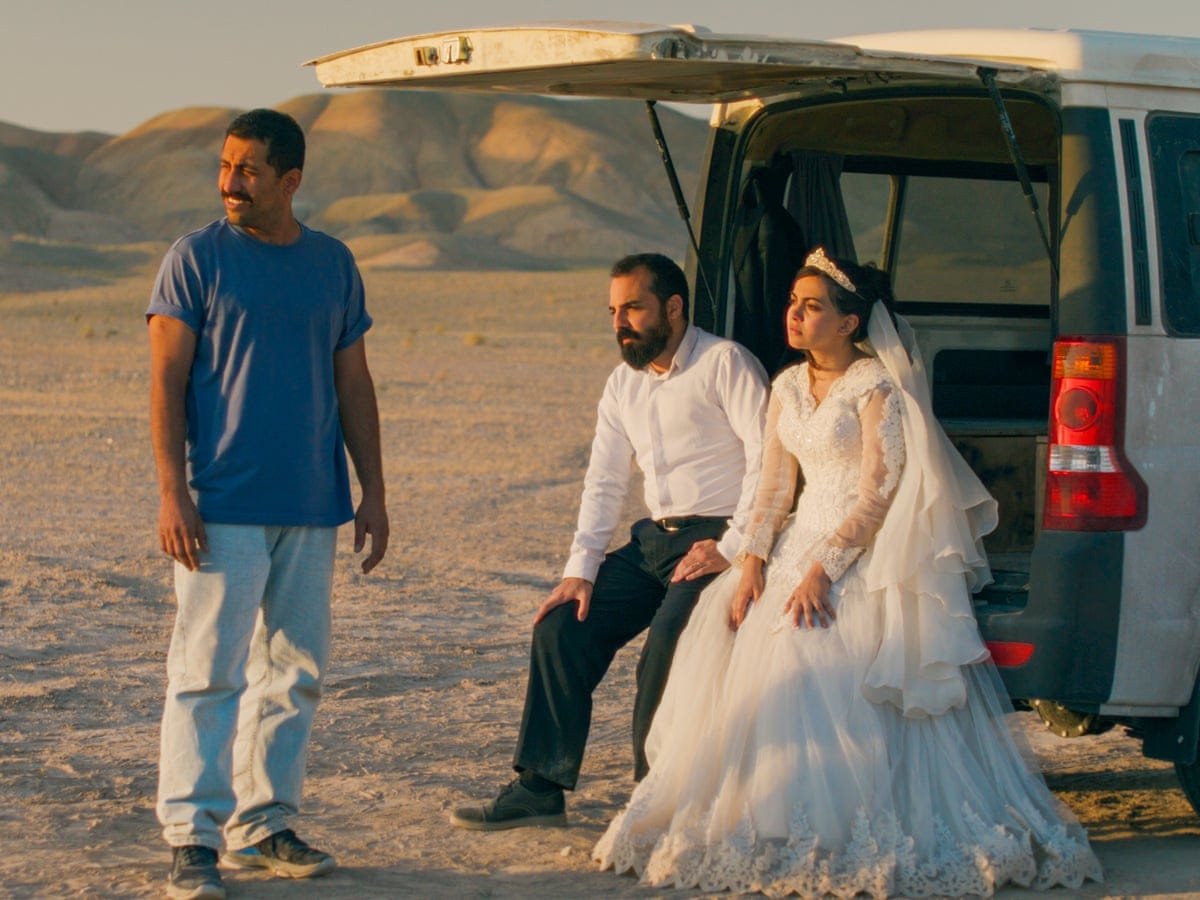Watching 3 Movies a Day (on Average) on 0 Sleep & 0 Calories for 3 Days Straight
Rapidfire mini-reviews of (almost) every movie I saw at Cannes
Spoilers ahead, obviously, but I’ll disclaim the level of spoiler
A week ago, I arrived at Nice after a horrendous debacle including a missed flight, small talk with a couple that clearly need to get divorced, and a walk through the organs of Gatwick Airport. My Airbnb host was a Kamaji-style old French guy who owned a massive collective of vinyls, cassettes and movie posters, and named his room “The Chocolate Chamber”, which I found endlessly amusing, because it was in fact a chocolate chamber.
After a day of walking around the Wes-Anderson-core town, I took the 40-minute train down to Cannes. The sun was bright but not harsh, and the sea glimmered in a way that made me finally understand the appeal of Continental Eurosummer. I spent an hour in a record shop charging my phone, where the owner helped me put on any record I wanted (“Strawberry Fields Forever”, “Generique”, Ella Fitzgerald) while he brewed me a cup of mint tea. That night, I pretty much couldn’t sleep a wink, so I got up at 5.30am. Thus begun our Hedonistic Kino Bender.
Sentimental Value, 9am, Agnes Varda Theatre
7/10
Major spoilers
I haven’t watched The Worst Person in the World, but I’ve always found this review of that movie amusing:
“Among the negative reviews, Deborah Ross wrote, "The ‘messy young woman’ trope has become, I think, rather overdone.... It’s got to the point where a film about a woman who, say, sticks to a profession, fills in her tax return on time, has developed some certitudes about life might be the more interesting, more original option.... The two hours go by pleasantly enough but the bottom line is: I felt nothing and didn’t care.”
In any case, the women in Sentimental Value are definitely fleshier than this — we have Elle Fanning in all her magnetism and charm, and Renate Reinsve in her quiet, pleading strength. Even though I do have a gripe with how spelt-out the themes were, this doesn’t detract from the fact we watch with bated breath at how Reinsve delivers the monologue that Fanning cannot comprehend, and with tightknit trepidation as she moves through her house in the final scene. Trier shows us how the creation of art is exemplified by the act of restraint — from Fanning, who pulls out when she realises that she cannot deliver the performance in her entirety. But restraint is not just integral to art. Sometimes, it’s a necessary ingredient for love, for mercy. It’s in what lies unsaid, in quiet presence, in a written monologue that reveals understanding without laying it all out. I just wish Trier had a bit more faith in his audience to exercise that same subtlety he champions. But then again I’m also not a Lady Bird fan, so maybe this genre of movie is just a bit tough for me personally to get.
Renoir, 11.10am, Arcades 2
9.5/10
Minor spoilers
When you’re a kid, all the truly terrible things that happen to you feel approximately as senseless as getting your “not sweet enough” strawberry shortcake slice taken away from you while you’re in the middle of digging into it with a fork. At first you think that things don’t make sense because you’re a kid and you don’t understand enough about the world. So you wait, hoping that understanding will surface when you grow up. When you do grow up, you learn to grapple with the absurdity by rationalising and constructing narratives and making up explanations. You can distract yourself for a short while to feel better and more in control, but at the back of everyone’s minds is the aching truth that endures no matter what: sometimes, terrible things just happen — nonsensical, violent, and ultimately random things for which there are no possible real explanations for, for which no cost-benefit analysis would have changed outcomes, absolutely nothing you could have done. In the aftermath of these terrible things, there is nothing you can do but wait. When you’re stuck in the waiting room, all you can do to pass your time is to return to being a 11-year old with a fuck-ass bob trying to develop psychic powers to guess what’s behind her playing cards. Maybe next time you’ll get it right. But what does it matter if you don’t?
Renoir made me feel seen in a way I didn’t know was even possible — watching this is probably the easiest way to understand me in my entirety (probably the first time I’ve 100% related to a character, maybe because neurodivergency or whatever). Genuinely brilliant filmmaking, and I recommend it to anyone who grew up just a little bit too caught up in their own head.
Urchin, 3.15pm, Arcades 3
7.5/10
Minor spoilers
After hating Babygirl so much that I wrote thousands of words about it, I didn’t expect to enjoy another motel room with Harris Dickinson involved. But with this Urchin, Dickinson kinda really blew it straight out of the water. His directorial debut is about a homeless drifter, Mike, trying to get his life together. Interestingly, as a guidance counsellor in the film highlights, Mike is an able-bodied young (white) man with no documented illnesses, making him extremely low on the priority list for state-provided housing. But even so, Urchin shows with absolutely no sympathy how fucking difficult it is to get out of these ruts, even with institutional support, even in the abundance of kindness of other people around you. You experience the repeated high highs and low lows that Mike goes through, and you really truly understand how he gets into the positions he does. Masterfully, Dickinson ensures that you don’t walk out of the cinema feeling any sympathy or paternalistic pity for Mike. Instead, there’s this unsettling empathy — that with one bad twist of fate, that is exactly how anyone would act when they’re stripped of all social rights for dignity, and everyone treats you like you’re a toothless child that needs to be disciplined and forgiven and “given a chance”. Adored the magical realism bits.
Resurrection, 10.15pm, Grand Theatre Lumiere
8.5/10
Major spoilers but also I don’t think it really matters in this case
I don’t care, I loved it, and if you didn’t, you’re racist. Okay, I’m kinda kidding, but not really. The first 20 minutes were spellbinding and I loved all the vignettes (in particular the monk one and the card-smelling one), but I definitely am not enough of a #filmcel to pinpoint exactly which movies they were referencing. What probably added to my enjoyment was that the movie was mostly in Chinese or Sichuan dialect, both of which I can understand without reading the English subs, and I grew up sleepily watching a lot of Chinese movies and TV shows on the couch so I was already used to the vibe. I don’t know how he does it, but Bi Gan references other movies without being cringe or derivative. HOWEVER, the last 40 minutes genuinely got my blood pumping so fast I could feel my heart in my ears. She melodramatically drapes herself across the harbour barriers, popping in and out of the shadows, doing karaoke over his body as the sun comes up. He follows her, enamoured, faithful, getting beat up a million times for this girl whose real name he still doesn’t know. When she bites him the first time, it’s playful, cute, and makes your heart ache. When she bites him the second time, it’s heartrending, all-consuming, and so hungry in such a painfully human way. But notably, the tone he takes when he tells her, “I don’t care about that either” — sorry to say but that made me melt.
I’m thinking of the ever-persistent Takeshi Kaneshiro in the bar in Chungking Express trying to get over his ex-girlfriend:“有一首歌叫做日出时让恋爱终结 (there’s a song called Love Dies at Dawn), 我现在的心情就是这样 (this is how I feel now)。怎么能让我忘记阿美呢? (How do I forget A-Mei?) 我就跟我自己讲,从这一分钟开始,第一个进来的女人,我就会喜欢她 (I told myself, from the minute on, the first woman who comes in, I’ll like her)。” I’m thinking about him rubbing his tie on her heels to clean them, completely disregarding the fact that she’s obviously, well, not up to lawful endeavours (“I don’t care about that”, reprised). I’m also thinking about the scene in Fallen Angels where Kaneshiro smokes a cigarette as the fight breaks out behind him, and how he trails behind Charlie, dedicated and puppy-like, to seek out the probably non-existent Blondie. Or maybe I just always have Takeshi on the brain, which I hope you all will find is an extremely understandable phenomenon. In any case, those 40 minutes would be my favourite part of a movie in a long, long, time. I NEED it in my veins right now. Also, a side note, Shu Qi might be the hottest woman on earth.
Alpha, 8am, Arcades 1
9/10
Mid-level spoilers…?
Unfortunately, given the widespread less-than-stellar critical reception to Alpha, I’m probably gonna have to re-watch this when it comes out officially and write an extremely long piece defending it. In any case, I realise that once again because I’m not enough of a #filmcel, when I talk about movies I like I usually relate them to my feelings and experiences and how real and raw they feel, instead of other movies. I am also concerned with narrative flow, overall coherency, and just the experience of watching the film but I don’t think Alpha commits any unforgiveable sins in those departments. So that probably contributes to why instead of picking out and criticising all the technical faults, I can only tell you that to me, Ducournau portrayed perfectly how it feels like to try to hold onto people slipping away, who want to slip away, and resent you for keeping them in their suffering. Soundtrack was phenomenal, even though there was a Tame Impala needledrop that genuinely made me laugh out loud. Just a teaser of my soon-to-come ironclad defense: to get this movie, you can’t hyperfocus on the lens of it being just an AIDS metaphor, but instead zoom out and think of it as any kind of degenerative disease (dementia, mental illness, etc). I also see it as a dual-perspective from the eyes of both Alpha and her mother, sharing an experience exclusive to the two of them (if you catch my drift since I’m not trying to spoil too much). Anyway, adored it, cried, I’m probably gonna go watch the one where the girl coituses with the cars next, and look out for the full review when this is for real for real out.
Meteors, 10.45am, Arcades 3
8/10
Major spoilers
The construction company buries radioactive waste 6 mins underground as a stop-gap measure. Tony frames it as an exercise in necessity, which it is, because what possible alternative means of disposal are there? In the short run, we cede to necessity. In the long run, we’re all dead.
In the same way, addiction alleviates short-term pain by numbing your senses. Addiction also cuts short long-term pain by, well, ending your life. But the interesting thing is if someone goes complete cold turkey off alcohol after decades of heavy abuse, there’s a possibility of them dying from the withdrawal effects (for eg Dan’s epileptic shocks). Alcohol then becomes a matter of survival — therefore, a necessity.
Mika resists against the perennial argument of necessity. He can’t sleep because he keeps trying to “fix it” — fix his life, Dan’s life, the state of the world. Mika rejects Dan’s blood money that he direly needs, even when Dan himself is more than willing to accept it. Because Mika knows that Dan doesn’t give a fuck about himself. Dan would have probably signed the indemnity form for free. Mika is the only person left in the world that cares about Dan. It’s interesting then that signing the form could have been, and was, justified by Mika as a matter of necessity. If Mika signed it to pay for his trial, it would have been an act of selfish denial: indifferent, but completely understandable. Instead, when Mika eventually signs it, it is out of love. In compromising to necessity, justified or otherwise, Mika commits an utterly irreversible act.
“Alcohol abuse is bad and you should quit even though it is hard and painful” is hardly a radical mantra. Where Meteors shines is how it shows with such perfect clarity that personal growth is sometimes not merely a purge of Bad Things. Things in your life that are good and full of only love and direction and push you to be better may still have to be left behind for you to grow as a person. This is the opposite of what people usually tell addicts — they tell them that they need a support system to get out of the cycle. But Meteors shows us that Dan could never have got out of his cycle of abuse through Mika’s cajoling and gentle intervention. He needed a split right down the middle — not the both of them leaving their town, but a blank slate.
Crucially, a “blank slate” is what the judge tells Mika he should be grateful for after giving him a slap on the wrist for his DUI. But what Mika recognises even in that moment is that true blank slates need to come at real cost. Something actually needs to be at stake. The doctor tells Mika that maybe the construction incident would be a wake-up call for Dan. It wasn’t, because Dan doesn’t care enough about his body or bank account or even his life. He practically dances drunkenly off the MIKO tower. The catalyst (arguably the only possible one) for change in Dan’s decades-long battle with addiction was Mika’s absence. Dan loved Mika so much that Mika being out of reach struck him so much more than the pain of breaking all the bones in his body. This may be counterintuitive, but maybe sometimes, the absence of presence (CRUCIALLY, NOT THE ABSENCE OF LOVE) is the only way for breakthroughs to happen, for blank slates to be granted, for lives to change. And even though Dan told Mika not to go looking for him, they’ll find each other again. It might take years, decades, but I know they will, because we did.
Exit 8, 3pm, Cineum
6.5/10
Japan’s birth rate problem is so bad they had to pull out Komatsu Nana & Jean Paul-Sartre to do pro-natal propaganda. Hell is not other people, it’s Dhoby Ghaut MRT. I am quite personally fond of the messaging — that it is our obligation not to ignore the anomalies in our daily lives, that paying utmost attention and choosing to act even in the most trivial of instances makes a difference.
Love on Trial, 7.25pm, Arcades 2
7/10
Minor spoilers
Honestly this is definitely a worse movie overall than Exit 8 but I rate it higher because sadly I’m fundamentally an incredibly shallow person and I just love watching cute girls fighting for their autonomy against all personal cost on a big screen, which is exactly what this was. Sue me. ;-)
Surprisingly, this was incredibly nuanced. While there were crucial scenes that should have been kept in (like, I think we deserved a monologue payoff which this genre of movie usually does), I did actually like what happened to the characters in the end, because it proved an extremely important point. She’s not fighting for love, she’s giving up everything she’s dreamt for to be treated like a person, and I will always root for that kind of idealism. Also, I found the scene where she runs towards the guy actually weirdly incredibly romantic.
Sirât, 8.30am, Claude Debussy Theatre
10/10
Mid-level spoilers
Sirât: a bridge in Muslim eschatology which spans the chasm of hell and connects this world with paradise and over which according to tradition only the righteous can cross while the unrighteous fall to a flaming punishment. (Merriam Webster definition, which I found super helpful)
This was what I hoped would be the Palme d’Or winner. I will probably also write more about this on a separate occasion, after mass release (fingers crossed), but it was genuinely a mesmerisingly brilliant film to me — the religious reference of the journey to paradise, the gorgeous landscapes, the striking banality of suffering. Every single second gripped me so hard I could barely breathe, it just felt like I kept getting punched in the throat over and over again. For those who argue that this is style over substance, I guess I just really disagree? The fact that the end of the journeys were essentially pointless is the point. When you embark on most great endeavours, you don’t know the toll you have to pay to cross the Sirât. Before you cross the bridge, it just seems like there are “no alternatives” but to cross (as the Dad tells the ravers re: his car being incompatible with the roads). But once you step onto the bridge, at some point you have to reckon with the pointlessness of your journey in the harsh afterglow of the price, usually much too unexpected and much too high, that you unwittingly chose to pay. You can regret it, you can hate yourself, but now that there’s nothing left behind you, all you can do is forge ahead. (Also, for some reason, this movie kinda reminded me of The Thing, but I’m not too sure if anyone else gets that.)
It Was Just an Accident, 6.45pm, Agnes Varda Theatre
8.5/10
Major major spoilers
Heartbreaking, hilarious, and a very Arendtian take on the use of violence. I particularly enjoyed the scene where they went to save the pregnant lady and child — this commitment to healing and creation in response to violence and destruction. This reminds me of the signs at the end of the Nanjing Massacre museum that caution against the thirst for revenge, to advocate for a better, more peace-loving future.
Reactive violence is meant to be cathartic. So when the characters choose of their own volition not to perpetuate the cycle of suffering, it still feels sort of lukewarm (even though you can finally breathe). But that’s where the final scene comes in and does its magic. Before this, you only get vague descriptions of the torture enacted on the characters. But when they’re decked out in full glam make-up and a wedding dress or when their injuries are made into the butt of a joke (“teapot”), it’s hard to understand the full force of their anguish until this final scene.
The grating, tinny sound of the dragging leg evokes for him, but also for the audience, borderline primal instincts of fear, hate, humiliation. And this makes us understand, fundamentally, that these “innocuous” triggers will flare up for him, for all these people, for the rest of their lives, catapulting them into their darkest days without their consent even on their very best days (like, you know, the day before their wedding). The point of the confusion over Peg Leg’s identity is that actually whether he’s Peg Leg doesn’t really matter, because the sound of any artificial leg, ever, will haunt all of their lives forever. Their suffering is inescapable. This makes their choice of mercy so much more noble, because no matter how much they try to move on, they chose to let go of the anguish that continually tears them apart every day, far beyond the pain of imprisonment. The kidney pain, the nightmares, the fainting. To forgive a wrong done to you in the past is one thing. To choose to let go of a wrong that continues to hurt you, every single day of your existence, is another beast entirely.
So, 10 days straight next year? Perhaps? Who knows? We shall see.
















